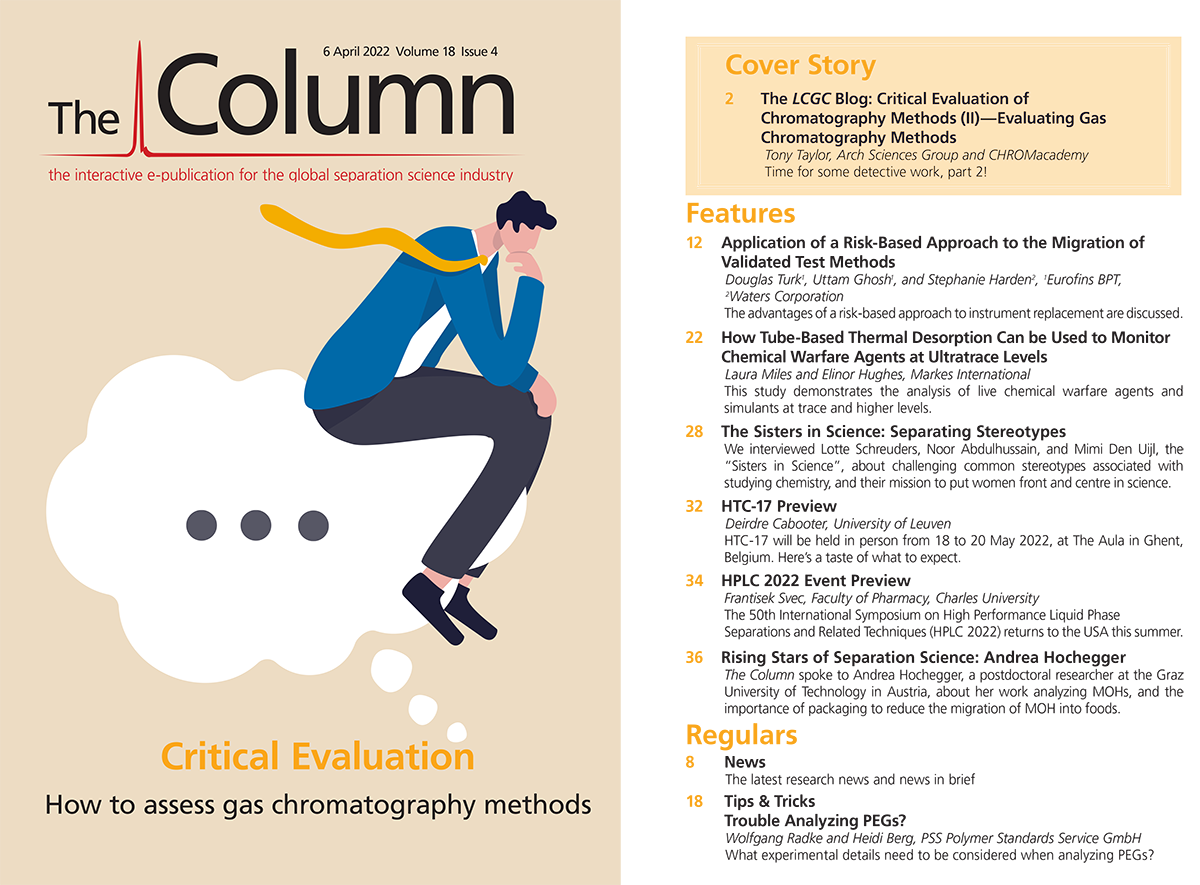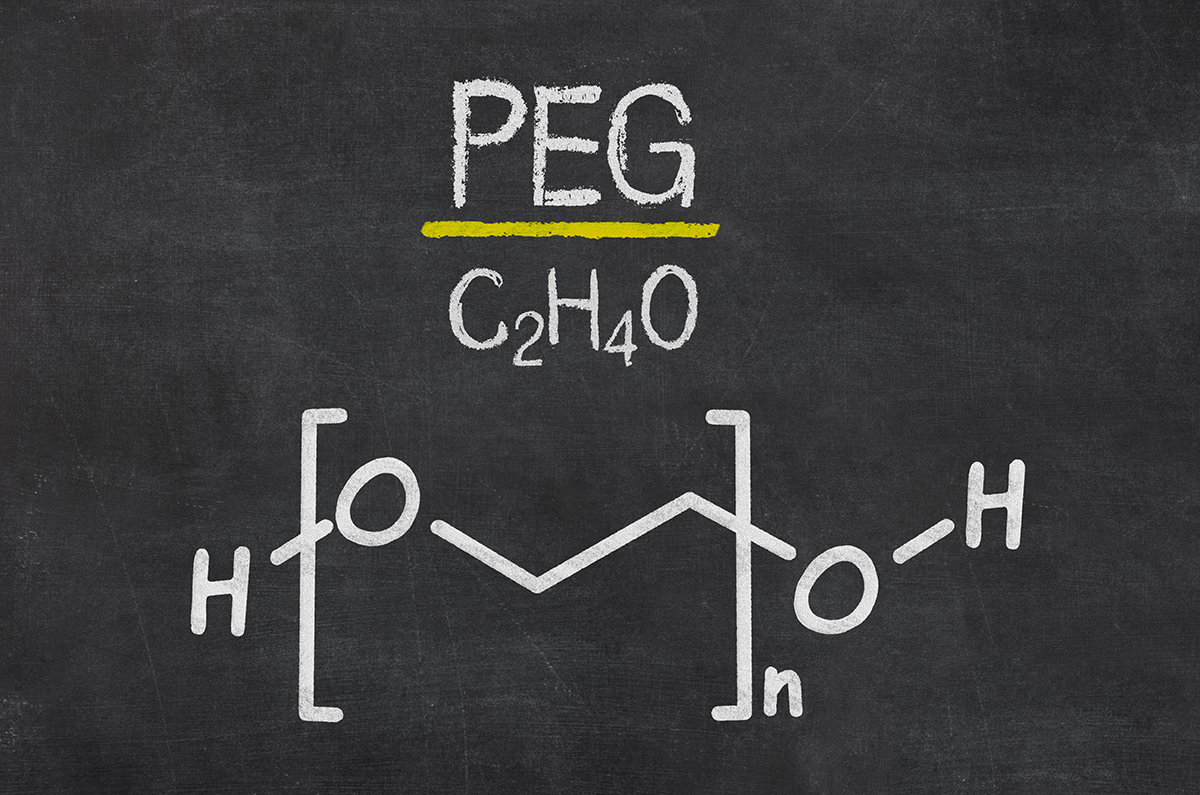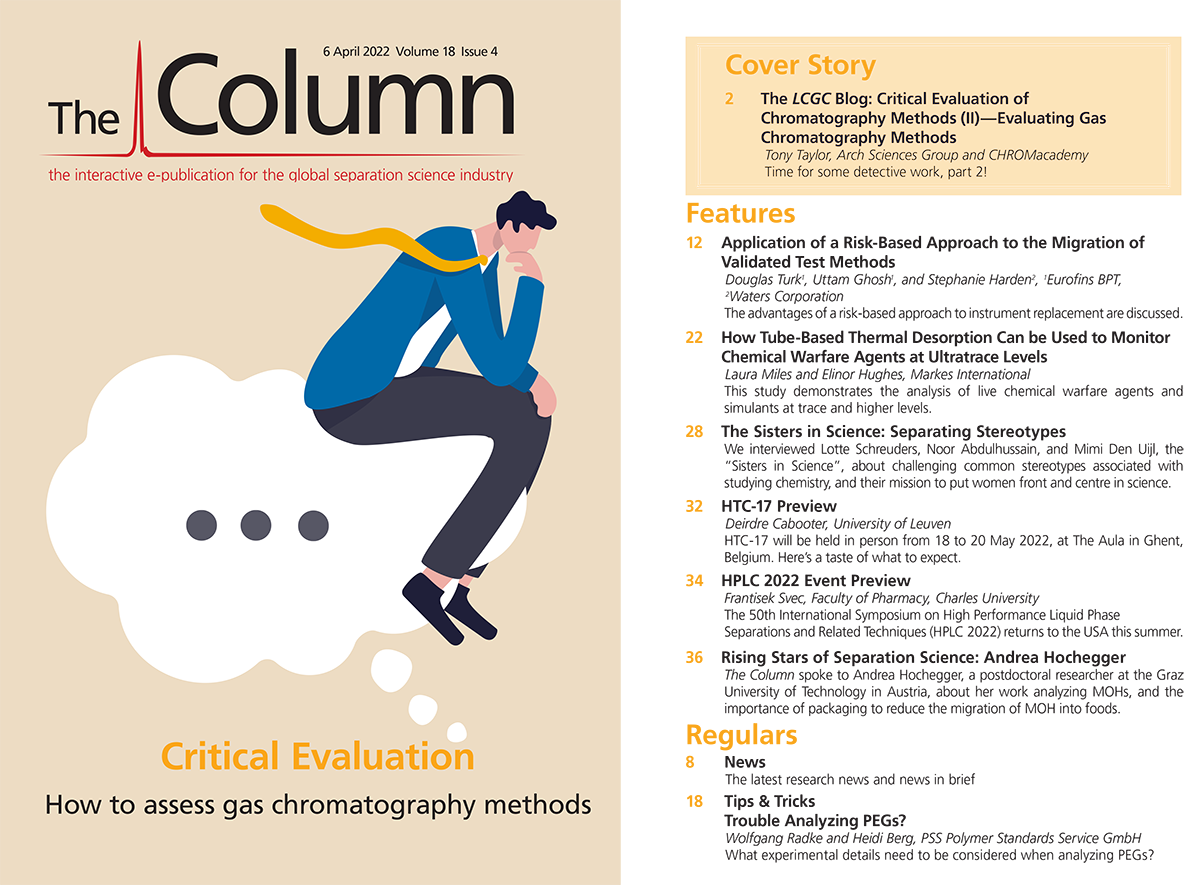Hyphenated Techniques in Chromatography and Separation Technology (HTC-17) Preview
The 17th International Symposium on Hyphenated Techniques in Chromatography and Separation Technology (HTC-17) will be held in person from 18 to 20 May 2022, at The Aula in Ghent, Belgium. HTC-17 will be organized under the auspices of the Royal Flemish Chemical Society (KVCV) and the Separation Science Group of the Royal Society of Chemistry (SSG RSC).
The HTC conference has been the premier platform for state-of-the-art developments in separation technologies and hyphenated techniques for more than 30 years. The conference will encompasses two parallel sessions consisting of plenary lectures, keynote lectures, tutorials, and oral presentations. Poster presentations will be held during coffee and lunch breaks. The symposium will also host an attractive technical exhibition where vendors will present their newest instruments and developments, topped with technical seminars.
We will cover fundamental and practical aspects of liquid phase (LC) and gas chromatography (GC), including multidimensional LC, multidimensional GC, supercritical fluid chromatography (SFC), LC–mass spectrometry (MS), and GC–MS. The programme will include topics such as three‑dimensional separations, automated sample preparation, ion‑mobility and native mass spectrometry, emerging detectors and separation modes, method development and artificial intelligence, column technology and stationary‑phase developments, system design and optimization, miniaturization and chip technology, and data mining and curation. We will also address bottlenecks and describe trends and new technologies for a wide range of applications, including (bio-)pharmaceuticals, macromolecules, medical diagnostics and clinical applications, forensic analysis and doping control, food analysis and safety, environmental analysis, energy, green approaches, high-throughput analysis, -omics (lipidomics, metabolomics, proteomics), and biomarker discovery, as well as modern industrial applications and natural products.
As always, we will ensure abundant networking opportunities during the conference, with an informal beer tasting event organized during a nocturnal poster exhibition, a conference dinner in the beautiful PoortAckere monastery, and lots of dissemination activities.
A number of awards will be presented at HTC‑17. The HTC/LCGC Innovation Award, sponsored by LCGC Europe, will be offered to a researcher with less than 15 years’ experience after obtaining his or her Ph.D. for “a pioneering contribution to the field of separation sciences by introducing new methodologies, new instrumentation, or new techniques in the field, with a strong focus on applicability”. The most innovative oral contribution presented during the conference will receive the HTC‑Award. The most innovative poster contributions will receive the HTC‑Poster Award. We will also organize a YouTube contest for young scientists that will be sponsored by Elsevier’s Journal of Chromatography A and Journal of Chromatography Open, a new open access journal.
Participants can register on the website until 10 May 2022: www.htc-17.com.
After a challenging time where meeting and networking have been severely restricted, we very much look forward to seeing you in Ghent!
For more information and registration, visit the HTC-17 webpage at:
https://htc-17.com/
E-mail: htc17@kuleuven.be

New Method Explored for the Detection of CECs in Crops Irrigated with Contaminated Water
April 30th 2025This new study presents a validated QuEChERS–LC-MS/MS method for detecting eight persistent, mobile, and toxic substances in escarole, tomatoes, and tomato leaves irrigated with contaminated water.

.png&w=3840&q=75)

.png&w=3840&q=75)



.png&w=3840&q=75)



.png&w=3840&q=75)
















